10. 4 Months, 3 Weeks and 2 Days (2007)
Written by Cristian Mungiu
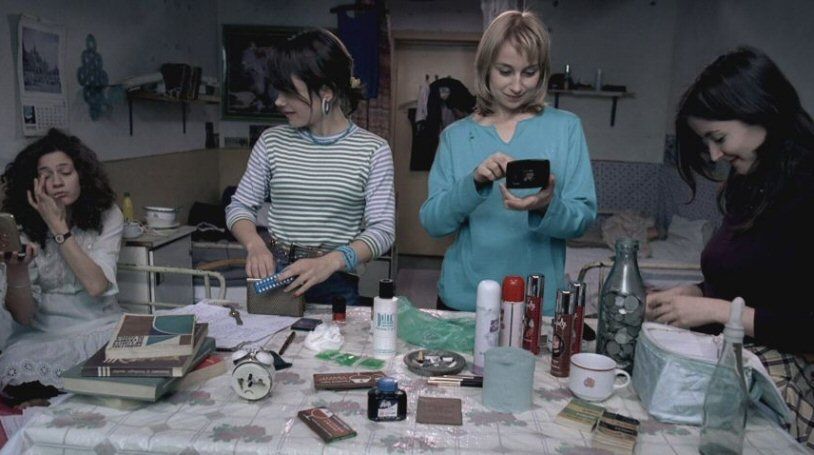
What it’s about: The Romanian film 4 Months, 3 Weeks and 2 Days occurs during communist Ceaușescu rule in the late 1980’s and tells the story of a young woman and her friend assisting her to get an abortion, an act that is illegal during this time.
What makes it great: The film does an excellent job serving as a critique against the political situation in its country of origin during the time period it takes place. Abortion, which in most developed countries is something in which is a relatively safe procedure is turned into this horror-filled event in the film which serves its purpose in highlighting the oppression faced in this time as they have to turn to the black market to have this procedure done.
The suspenseful tone of the film is accented by the fact that even after going through all of this, the abortionist demands the two women have sex with him as payment.
9. Inside Llewyn Davis (2013)
Written by Joel and Ethan Coen
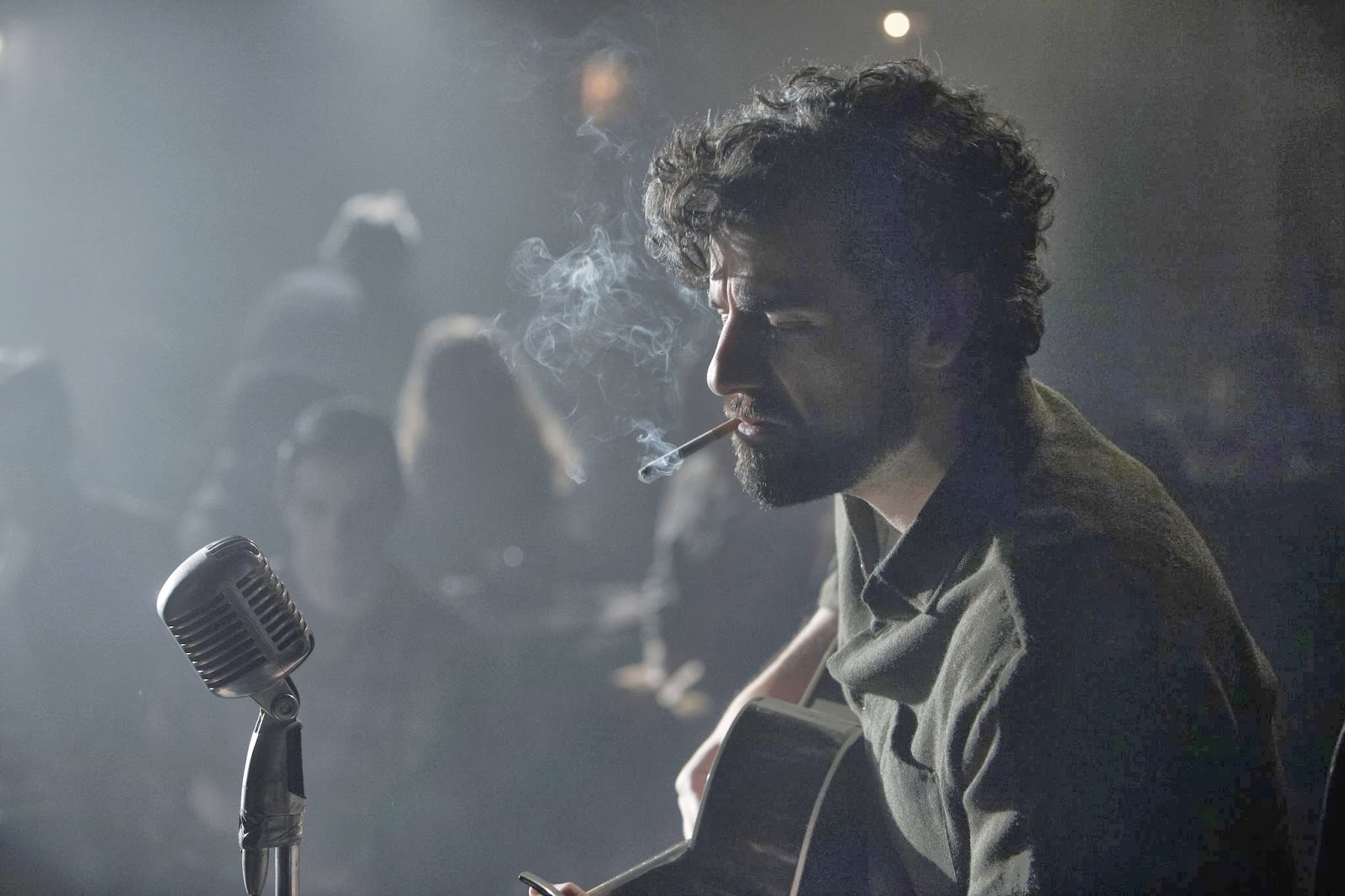
What it’s about: A week in the life of Llewyn Davis, a folk singer in Greenwich Village, who struggles with making it as a musician and with the world around him as a result of his decisions.
What makes it great: Inside Llewyn Davis, like so many other Coen brother films, is largely rooted in philosophical context. The main philosophy behind the film is that of the existentialist philosopher Albert Camus and his work The Myth of Sisyphus. In this work, Camus tells the story of Sisyphus, a man condemned by the gods to push a boulder up a hill only for it to roll back down.
The general assumption would be that Sisyphus would grow tired of having to push this boulder up each time yet Camus says that we must imagine Sisyphus happy. That concept, paired with the allusion to Schrödinger’s cat, creates the narrative of the internal conflict within Llewyn’s decision to continue with music as well as his life.
8. There Will Be Blood (2007)
Written by Paul Thomas Anderson
Adapted from the novel “Oil!” by Upton Sinclair
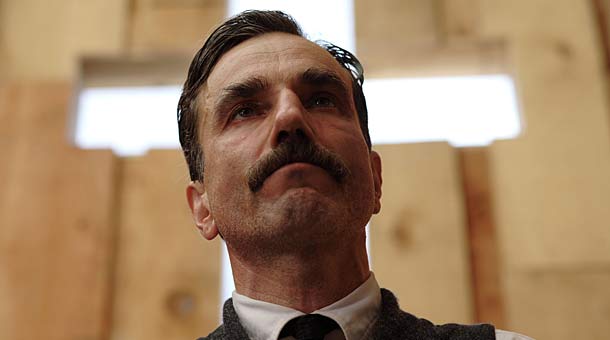
What it’s about: Daniel Plainview, an oil tycoon, buys up the property in area to collect the oil. While there, he encounters conflict with the church and with his own greed.
What makes it great: Based on the novel by Upton Sinclair, the film highlights early 20th century America as industries such as oil, steel, etc. were growing following the industrial revolution, leading to an exorbitant amount of greed and the birth of people such as Rockefeller.
The film also portrays the conflict of the time period within corporations vs religion as both possess the greed that the film highlights on as the conflict between Daniel Plainview and Eli Sunday grows. The film also shows the solipsistic mind of Daniel Plainview as he lacks the ability to deal with others as shown in the murdering of the man claiming to be his brother.
7. Yi Yi (2000)
Written by Edward Yang
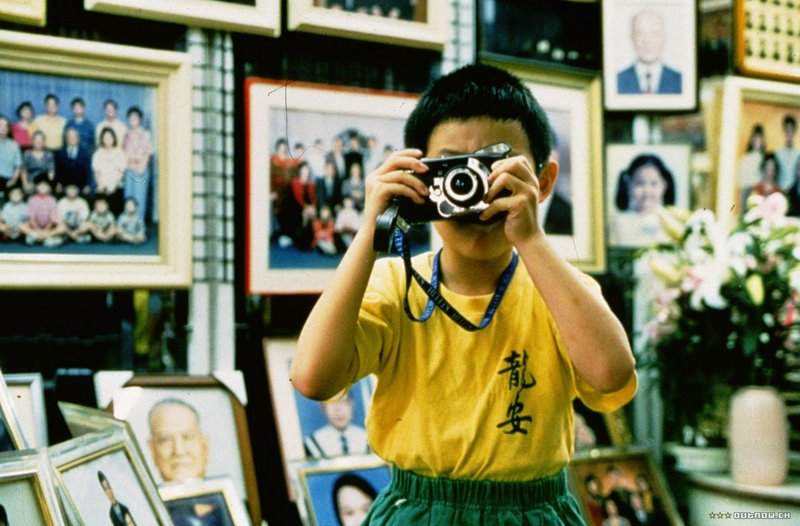
What it’s about: Yi Yi portrays the life of a middle class family in Taipei as each member deals with their own problems in life and their relationships.
What makes it great: The juxtaposition of expectation and reality as the film highlights both the expectations each character has in their life and the reality of the situations they’re in through several life stages. Many hard questions of life are asked, often by the youngest, Yang-Yang, which aren’t necessarily answered just as in life.
The viewer is often reminded that they are only bearing witness to what is occurring and do not have control over it. This is highlighted in the scene in which Yang-Yang asks his father how he can know what he’s looking at if he’s not able to see through his father’s eyes.
6. The Tree of Life (2011)
Written by Terrence Malick
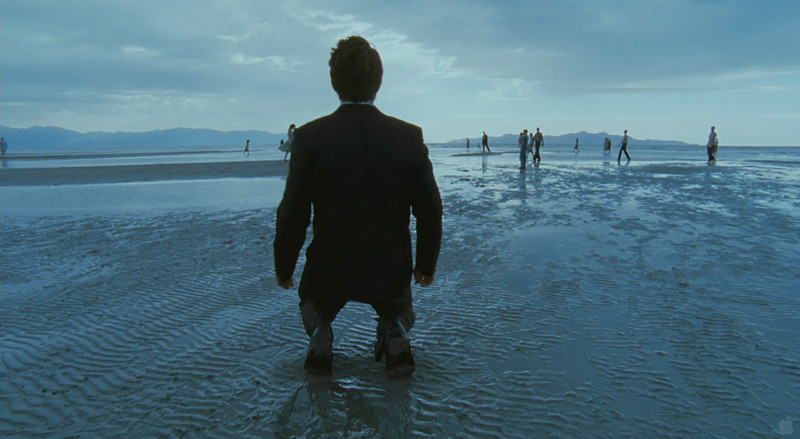
What it’s about: The Tree of Life, often critiqued for being too experimental, tells the story of a man struggling to reconcile with his father as he finds himself lost in the world.
What makes it great: The film is an allegorical representation of the book of Job and is heavily rooted in the philosophy of Danish existentialist Søren Kierkegaard. The main theme of the film comes from the work Eighteen Upbuilding Discourses in which Kierkegaard, talking of Job, asks “Does he alone see God’s hand who gives, or does not also the one see God’s hand who sees that he takes away?”
The film similarly discusses how the world has become what it is into the specific details of things as Jack, the son, questions his faith as he tries to reconcile with his father and what all it takes to do so.
5. No Country for Old Men (2007)
Written by Joel and Ethan Coen
Adapted from the book by Cormac McCarthy
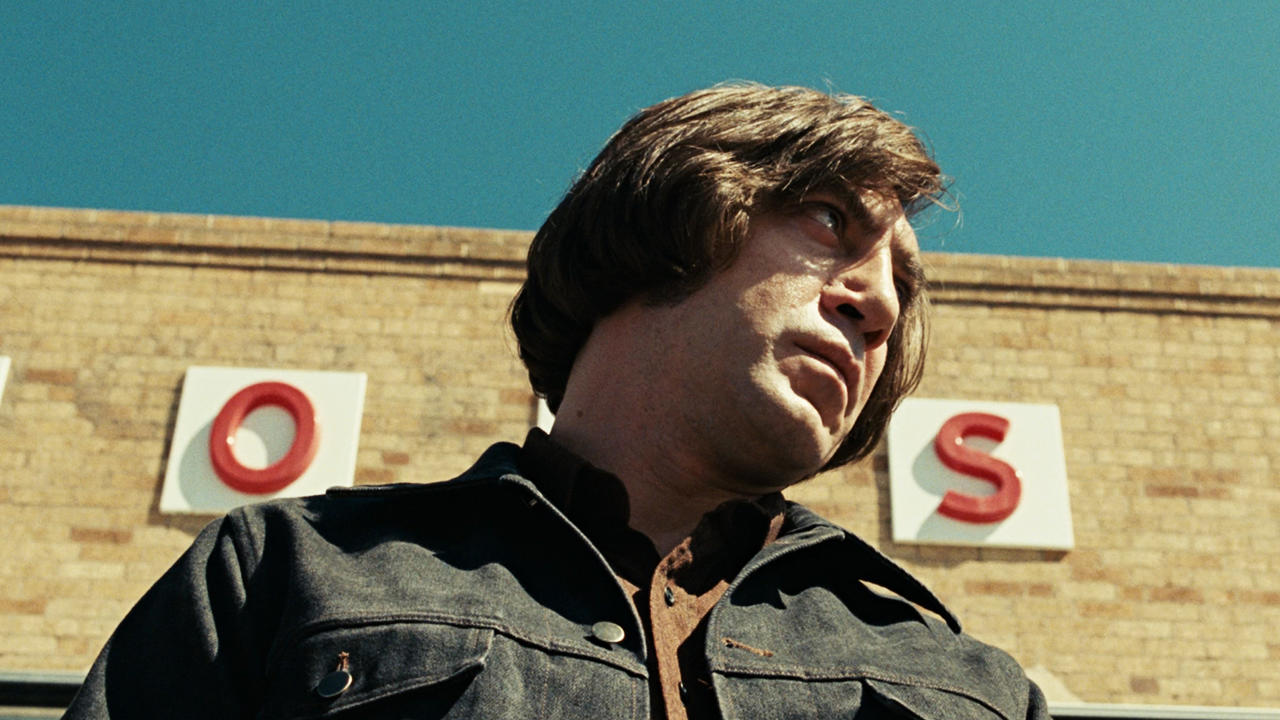
What it’s about: Llewelyn Moss, while out hunting, discovers the scene of a drug deal gone wrong. While investigating the scene, he finds the money which was never handed off. He is then hunted down by Anton Chigurh as Sheriff Ed Bell attempts to track down Chigurh.
What makes it great: This screenplay, similar to Inside Llewyn Davis, is one of the more philosophical parts of the list as it is heavily rooted in, and may be the greatest example in film of, nihilism. The aspect of the western elements emphasizes the philosophical connotation of nihilism in the film as it relates to the values of previous generations as they begin to degrade.
Chigurh is the embodiment of that idea as Nietzsche says the weak will perish. The film also illustrates what perhaps may be the most nihilistic element in that there is no salvation, shown as Llewelyn is unable to escape.
4. Synecdoche, New York (2008)
Written by Charlie Kaufman
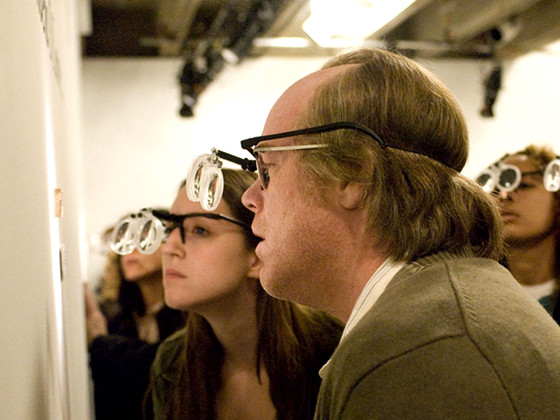
What it’s about: Caden Cotard, a successful playwright, receives a MacArthur Grant for his work. As he begins his new project, he begins to lose his life as he delves further and further into his play as his play becomes his life.
What makes it great: In Synecdoche, New York, Charlie Kaufman creates the solipsistic world of Caden Cotard, a man who “lives in a half-world between stasis and anti-stasis”. Cotard is a man apathetic to those in his life but dwells on the effect that they have on his life. As with most Kaufman films, the issue of identity and the nature of self arises within several layers. The ending is left somewhat ambiguous as Kaufman leaves you clues to find out what you think happens in the film.
3. Eternal Sunshine of the Spotless Mind (2004)
Written by Charlie Kaufman, Michel Gondry, and Pierre Bismuth

What it’s about: Joel Barish, a man who has recently been through a breakup, finds that his ex-girlfriend has had her memory erased. He then decides to have the same procedure done but as it’s occurring he finds that the meaning of the memories outway the heartbreak he feels.
What makes it great: Eternal Sunshine of the Spotless Mind is one of the more realistic depictions of relationships that shows both the falling in love, twice, and the falling apart.
The film also approaches a realistic view through the sci-fi aspect of Lacuna Inc. as it shows the processing of memories of someone you’ve fallen in love with as often the bad memories can overshadow the good and creates the dilemma of whether you would erase it all to remove the bad ones or whether they are worth remembering if it means you keep the good ones.
2. In the Mood for Love (2000)
Written by Kar-Wai Wong
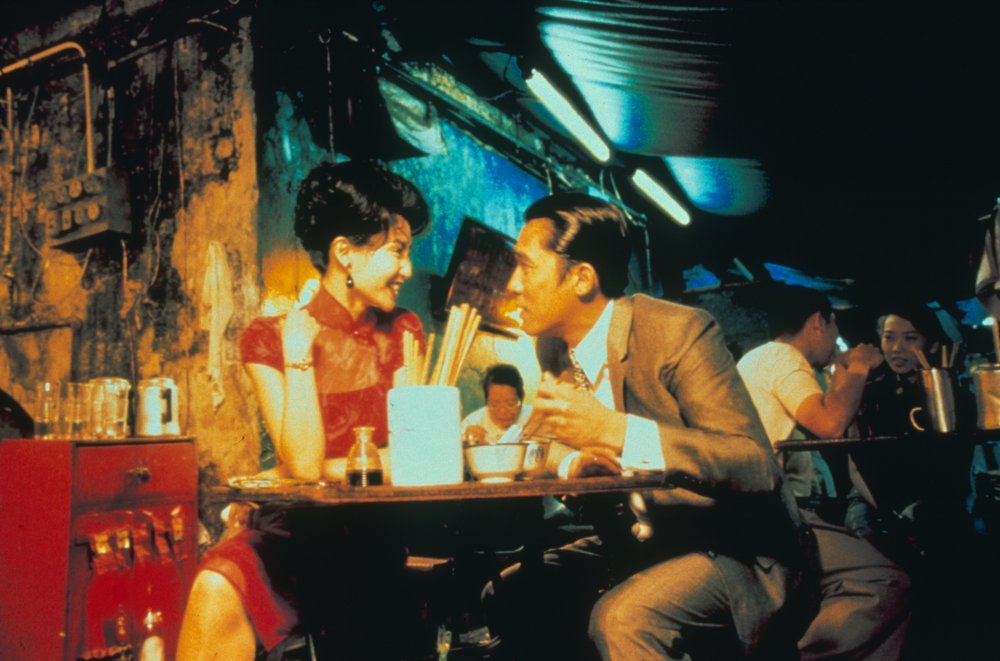
What it’s about: Two neighbors grow closer together as they discover that they have much in common. However, the two are married to different people and grow worried that though their relationship is platonic, those around them may begin to believe otherwise.
What makes it great: The film is a romantic film without having a romantic relationship within the main characters. Throughout the entire film, In the Mood for Love creates this feeling that at any moment the two are going to realize their love but it never comes to fruition and leaves you heartbroken as Chow is.
Even after Chow leaves for Singapore and has been there for a year, you still believe that they’re going to realize their love. Similarly, three more years later back in Hong Kong you hope for them to get together and it just never comes. Perhaps the most beautifully heartbreaking film to be made.
1. Mulholland Drive (2001)
Written by David Lynch
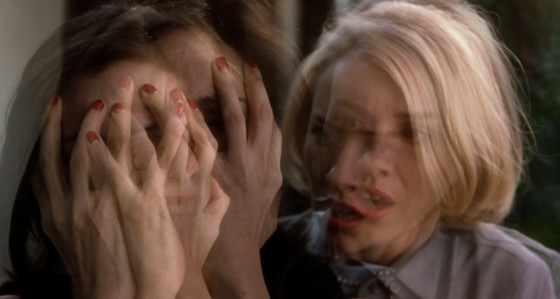
What it’s about: Following a car accident, Betty finds a stranger with amnesia, Rita, in her aunt’s apartment in Hollywood which she’s currently living in as she tries to become an actress. The two become more confused as they find a blue box in Rita’s purse. As they discover more they get to the club Silencio in which the key to the box is found which unlocks the real world where things are entirely different.
What makes it great: This is arguably the most cinematic screenplay of the century as no other form of media would be able to convey the twist of the alternate world with the alternate personas of the characters or at least as well as Mulholland Drive is able to do. The film also provides one of the best commentaries on Hollywood in general as well as on actresses specifically.
Author Bio: Willis Maritz is a Media Production student studying to become a screenwriter-director. His favorite screenwriter-directors include Charlie Kaufman, Wes Anderson, Paul Thomas Anderson, and David Lynch.